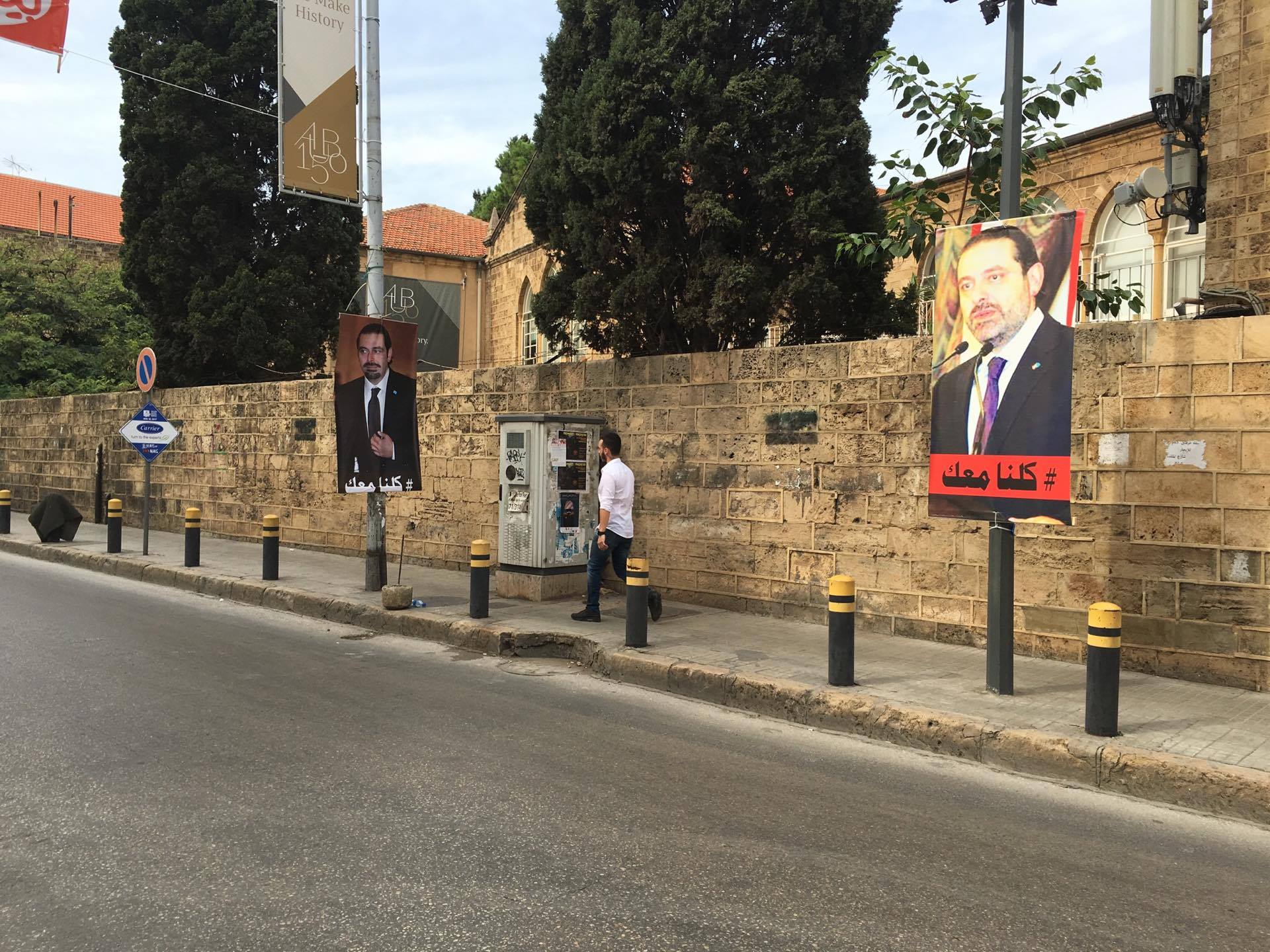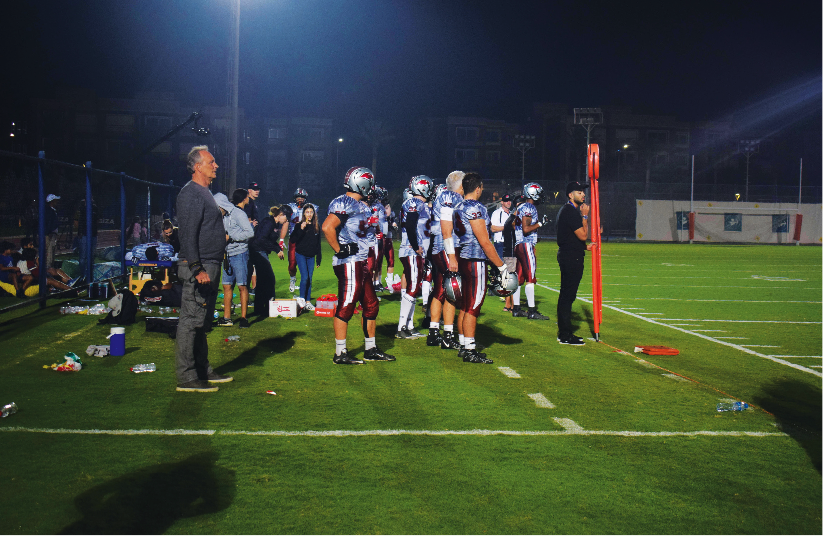DISPATCH: Lebanon Fears Renewed Conflict after Hariri’s Resignation
By: Malak Sekaly
Follow @malaksekaly
BEIRUT – The Lebanese are angry and anxious following Prime Minister Saad Hariri’s sudden announcement of his resignation in a live broadcast from Saudi Arabia on November 4.
Many see Hariri’s abrupt move as suspicious and odd, given his claims of foreign intervention and fears of assassination as the main reason behind his resignation.
Even though Saudi Arabian officials have denied coercing Hariri into resignation, many Leabense believe Saudi Arabia twisted Hariri’s hand into stepping down.
“It becomes clear that Lebanon is fertile ground for Saudi policies if we consider that Lebanon is a Shiite power base in the region, and KSA used to count Lebanon as one of its main areas of influence since 1990,” said Media Studies Lecturer at the American University in Beirut (AUB), Hicham Tohme.
Saudi Arabia hosting Hariri’s announcement is troubling for many Lebanese who see the Arab nation as meddlesome in their affairs.
“Knowing that he resigned from Saudi Arabia I’m suspecting his resignation was a Saudi machination,” Political Studies sophomore at the American University of Beirut, Fouad El Amine said.
The fear that Saudi Arabia manipulated the decision has trickled down to all segments of Lebanese society.
“The resignation was obliged upon him,” said a middle aged Lebanese taxi driver that asked to remain anonymous.
“There is a plan and agreement between the United States, Iran, and Saudi Arabia,” he added.
Hassan Nasrallah, leader of Lebanon’s Hezbollah political party, also blames Saudi Arabia, labeling the resignation as a “Saudi-imposed decision.”
Nasrallah then appeared on his organization’s television channel, Al Manar TV, saying that Hariri’s speech was “written by Saudi Arabia.”
Delivering such a significant message abroad, and especially in Saudi Arabia, conveys that Lebanese sovereignty “does not mean much” to Hariri, El Amine told The Caravan.
It is still unclear if Hariri’s resignation will be accepted, as Lebanese President Michel Aoun clarified that he will not accept Hariri’s decision until he returns to Lebanon to explain his reasons, presidential palace sources announced a day after the announcement.
Hariri, however, denounced Iran in his televised announcement for interfering in the affairs of many nations, including Lebanon.
He also held Hezbollah accountable for Iranian intrusion, calling the Lebanese movement “Iran’s arm.”
His word choice angered many Hezbollah supporters, as he implied the need to cut Iran’s Lebanese arm throughout the speech.
“If he thinks that Hezbollah is Iran’s arm in Lebanon, and that we should cut that hand, he is waging war with Hezbollah,” said AUB Political Studies senior Issam Zeytoun.
“If he wants to cancel out Hezbollah, he will cancel out almost 30 percent of the Lebanese population,” added Zeytoun.
“This is not a reasonable opinion.”
This is greatly problematic as Hezbollah supporters, being primarily Shiites, make up approximately 27 percent of the Lebanese population, according to the 2012 Report on International Religious Freedom by the US Department of State.
Yara Malke, a senior Business Marketing student at AUB fears an internal war.
“I’d put fear and anxiety as my first options for what emotions I associate with his resignation,” she said.
Exchange student at AUB, Sophie Tanha is worried about how the current situation will affect her trip to Iran next week. She fears tensions that could lead to violence in the short term.
Malke further emphasized the shared anxiety amongst the Lebanese.
“This resignation left a hole in the system where there’s a seat holding a great deal of power that’s been left empty,” she said.
On the other hand, a faction of the Lebanese see this as just another example of the political unrest they claim to be used to.
Concerning the impact of Hariri’s resignation, Tohme does not predict any major consequences.
“This is neither the first time that he suddenly loses the position, nor is it the first time that the country finds itself with a caretaker government,” he said, referring to when Hariri’s government collapsed in 2011.
“We are used to this,” said 65 year-old coffee shop cashier Fady Alsakf.
Regarding the tensions between Hezbollah and Hariri, he added that political leaders always fight and then forgive.
Yara Kabalan, 24 year-old supermarket seller also said that she is not at all worried.
“The situation is already bad and it can’t get worse,” she said.
Even though a war is deemed unlikely by many, the Lebanese are united in opinion when it comes to Saudi Arabia’s interference in the country.
“Saudi Arabia is trying to antagonize us, but nothing will happen because no one is willing to actually start a war,” she added.
Yet Hariri’s resignation proves to be a critical event in understanding “how important it might be if used by Saudi Arabia to further fuel tensions in the country,” Tohme added.
Hariri, representing the Sunni Muslim Lebanese sect, has had longstanding tension with Hezbollah, the leading Shiite Lebanese organization.
This is primarily due to the fact that two leaders represent the major opposing Muslim confessions, both seeking to expand their influence in the Lebanese political sphere and society.
This is further played out with Hariri’s close ties to Sunni Saudi Arabia, both as a dual national and as players in the region’s Sunni axis, and Hezbollah’s alliance with Shiite Iran.
Son of former Prime Minister Rafic Hariri, who was assassinated in 2006, Saad Hariri followed in his father’s footsteps from 2009 to 2011. He then reassumed the role of Prime Minister in 2016.




